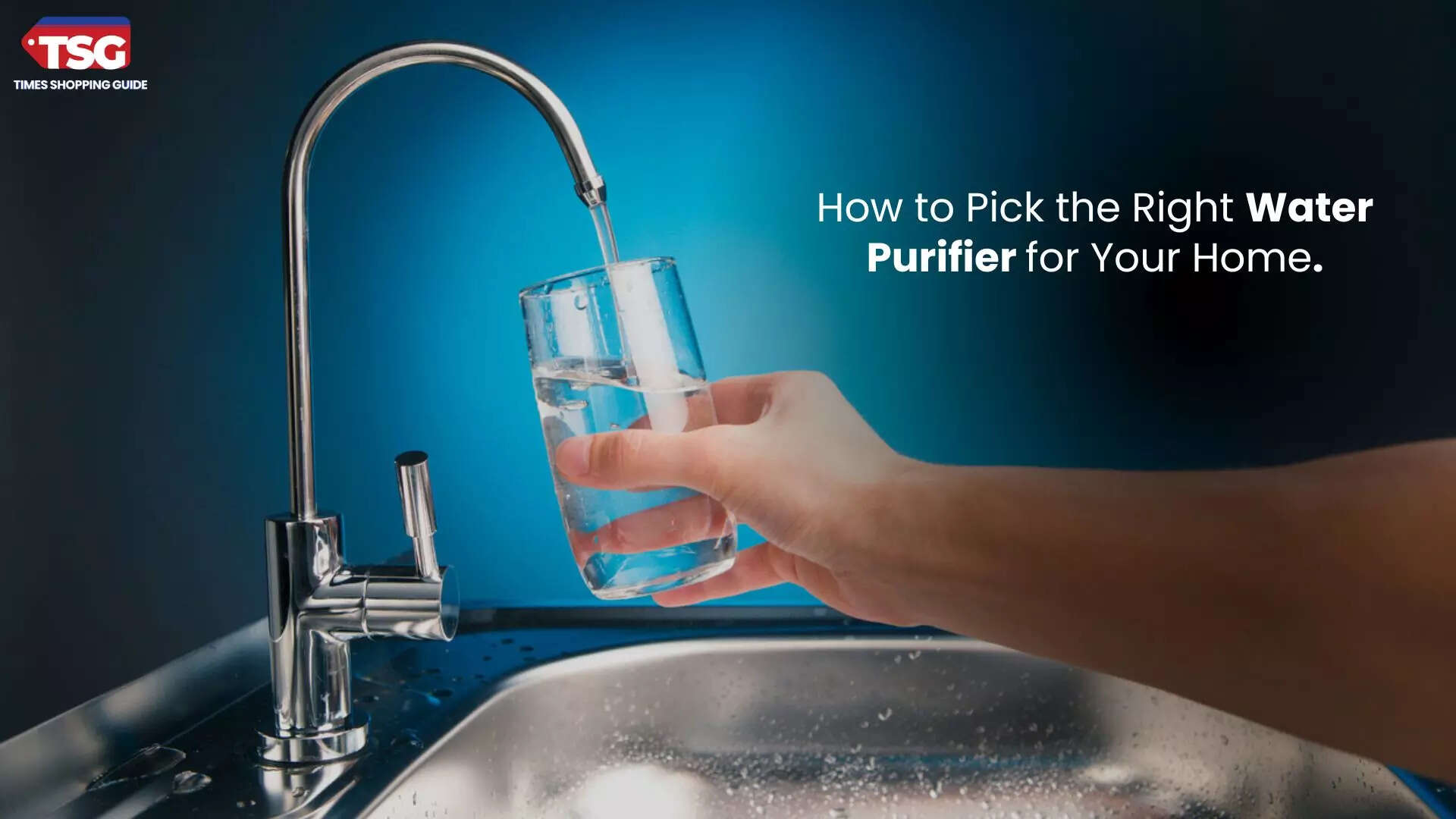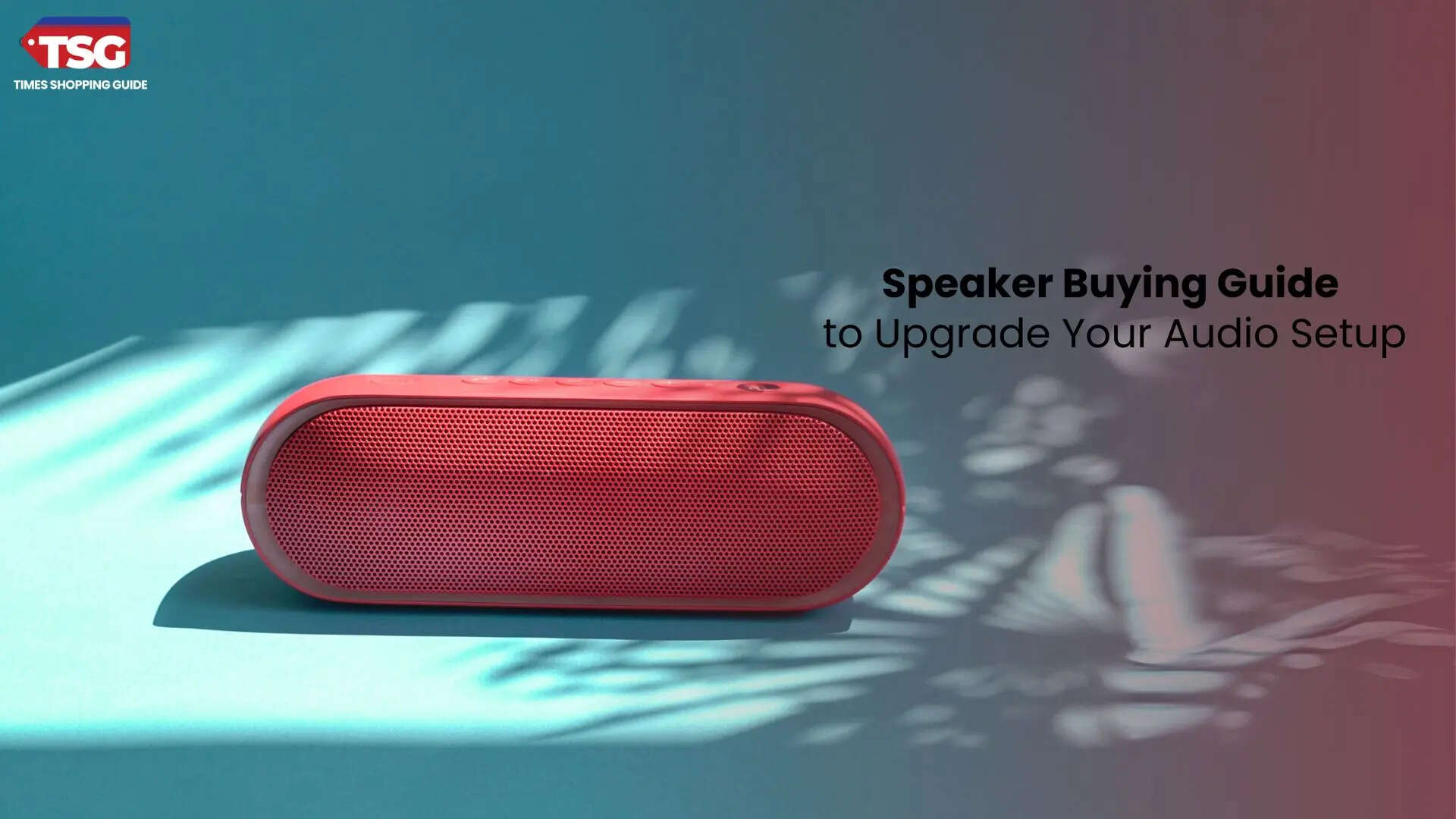- home
- electronics
- buying guides
- buying guide for water purifiers everything you need to know
Buying Guide for Water Purifiers: Everything You Need to Know
Clean drinking water is not just a luxury but a necessity. With increasing water pollution and contamination factors, a good water purifier is as crucial as fresh air for the health of your family. If you are looking for a water purifier, this guide will help you choose the best one.

In this guide, we will go through all the important factors you must know while buying a water purifier. Let’s start with the different water purifier technologies available in the market. Each of them has its own strengths and weaknesses.
Different types of water purifiers
1. Reverse Osmosis (RO) Purifiers
RO water purifiers are the most recommended ones. RO stands for reverse osmosis. To understand what reverse osmosis is, we first need to understand its process. In this process, water flows from an area of low solute concentration (low TDS level) to an area of high solute concentration (high TDS level) through a membrane (appx. 0.0001 microns). However, reverse osmosis is exactly the opposite of this. In this process, water molecules from higher TDS level flow to the lower TDS level. That is why RO water purifiers are best for metro cities and areas with high water TDS.
2. Ultrafiltration (UF)
The next type of water purifier is Ultrafiltration, which also uses a semi-permeable membrane to purify water. However, unlike ROs, UF purifiers have larger pores (approximately 0.01 microns), and hence, they are not suitable for areas where water TDS is high. They can only remove undissolved solids and larger impurities. One advantage of using UF purifiers is that they don't require electricity to function, and hence, they are cheaper to run.
3. Ultraviolet (UV) Purification
As the name suggests, Ultraviolet (UV) purification uses ultraviolet rays to purify waters. In these purifiers, water flows through high-intensity UV rays, which kill or inactivate bacteria and viruses that are harmful to our health. However, UV purifiers cannot remove any dissolved or undissolved impurities from water. Therefore, UV water purifiers are only recommended for areas where the water source has a low TDS level.
Which water purifier is the best?
RO technology has become synonymous with water purifiers. However, buying the best water purifier depends on factors like the source of water and the TDS level of input water. RO water purifiers are best suited for areas with high TDS levels. According to the Bureau of Indian Standards (BIS), the maximum TDS limit for safe drinking water is 500 ppm.
Since we discussed TDS a lot, let's understand what it is and how TDS level in water is considered safe.
What does TDS in water stand for? How much TDS level is suitable for drinking in water?
TDS stands for total dissolved solids, which indicates the amount of total dissolved impurities, whether organic or inorganic. The substances bigger than 2 microns in size are termed as dissolved solids. The maximum TDS level in water that is advised by BIS is 500mg/litre. If the water TDS level is more than 1000mg/litre, drinking is not safe. TDS level less than 300mg/l is advised as pure water.
How do RO water purifiers work?
The RO purifiers force the water under pressure through a membrane with approximately pores. 0.0001 microns. The dissolved solids in water, which are smaller than 0.0001 microns, pass through the membrane and are free from TDS. It compiles several stages, including the sediment layer, carbon filter, RO membrane, and post-carbon filter, ensuring the water reaching you is impure-free.
Now that you know everything about the different categories of water purifiers, how they work, and how much TDS level is suitable for drinking, there are a few more factors that you must consider while buying a water purifier.
Additional factors that are must to consider
1. Understanding the water quality: Before buying a water purifier, examine the water supply quality of your area. You can consult a local water quality report to determine the level of impurities. Then, you can make a choice based on that.
2. Set a budget: Water purifiers come in a range of prices and a realistic budget will help you narrow your choices.
3. Know what features you need: These RO water purifiers come with a range of additional features, and many of them might not be important to you. Although the more, the merrier, the pricing will also be influenced by these features. Hence, based on your budget, look for important functionalities like filtration stages, storage capacity, mineral retention, and ease of maintenance.
4. Brand reputation and service: It’s always good to buy water purifiers from trusted brands known for their quality, customer service, and warranty programs. Investing in RO water purifiers means you’re investing in your and your family’s health.
To make your work easier, we have also listed some of the best RO water purifiers available today across different price categories.
Best RO water purifier for home
Here are some of the best water purifiers currently availavle on the market:
1. AquaguardSure Delight NXT RO+UV 6 L Storage Water Purifier
- Suitable for all water conditions
- Easy installation and after-sales service
- Offer ample water storage capacity for a family of 4
What we don’t like?
- Water is wasted during the purification process.
2. KENT Elegant Copper RO Water Purifier
- Automatic switch functioning
- Cleans water from impurities of up to 3000 TDS
- The multi-stage purification process
- Good storage capacity
What do we not like?
- Suitable only for large families
User feedback: The LED light indicator informs about the functioning of the water purifier at all times. Customers never worry about their electricity expenses as this machine is highly energy efficient.
3. HUL Pureit Eco Water Purifier
- Suitable for different water conditions across India
- No water wastage during purification
- Comparatively, an expensive purchase
User feedback
Users liked the highest water-saving rate of up to 60%, which makes it one of the best products available in today’s market.
4. Proven ELEVEN Copper + Mineral RO+UV+UF 10 to 12 Liter RO + UV + TDS ADJUSTER Water Purifier
- Immunity boosting properties
- Dual water supply
- Suitable for all water conditions
What do we not like?
- Water is wasted during the purification process
User feedback
The wall-mountable design makes it very suitable for the domestic purpose of the users. Moreover, users can use this purifier in different water conditions.
5. V-Guard Zenora RO UV Water Purifier
- Immunity booster quality
- Safe and free of germs
- Suitable for different water conditions
What do we not like?
- A little pricey as compared to peers
User feedback
Users benefit from the assured affordability, attractive plans, and free installations attached to this product, making it suitable for small families with different water consumptions.
Disclaimer: Times Shopping Guide is committed to bringing you the latest products from the best brands. Our selection is based on market research and positive consumer feedback. Times Shopping Guide is also a part of an affiliate partnership. In line with this, we may receive a portion of the revenue from your purchases. Please note that the product prices are subject to change based on the retailer's deals.








